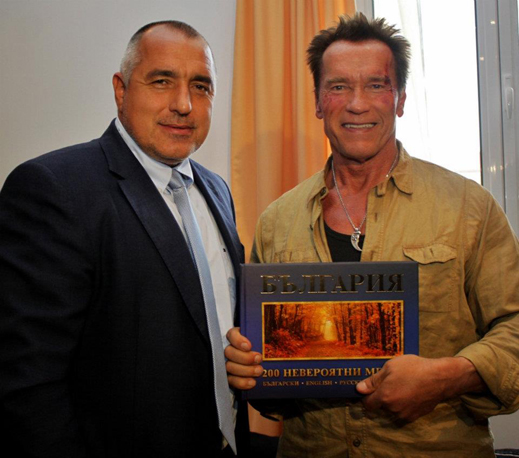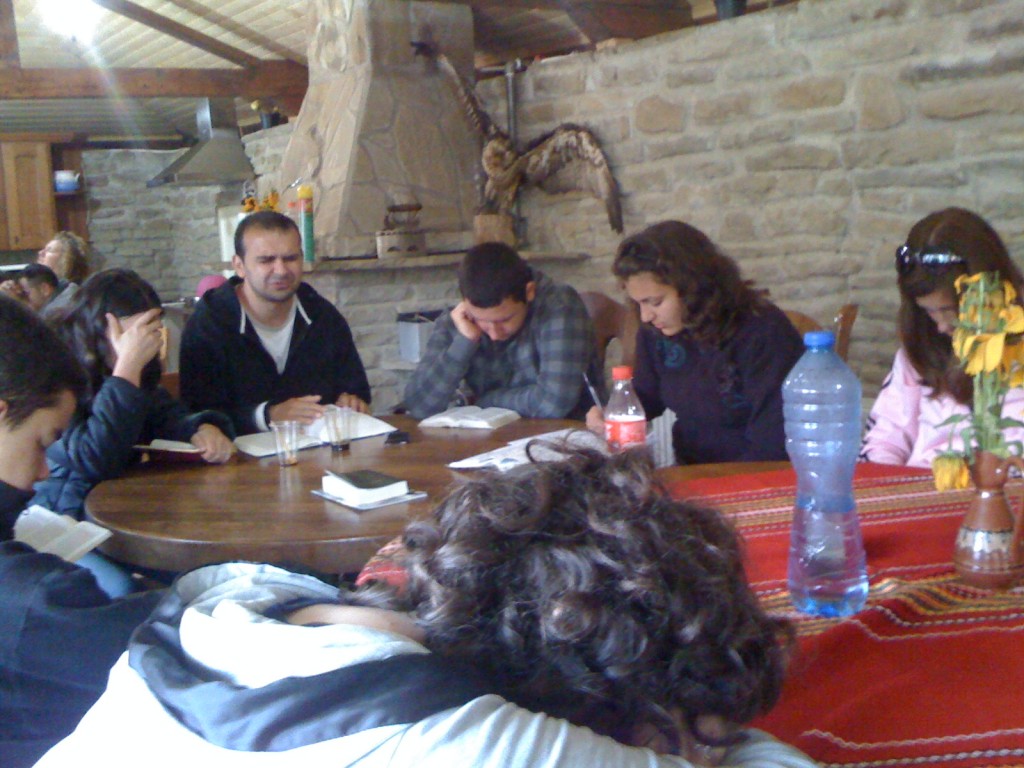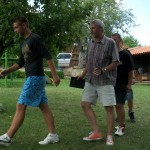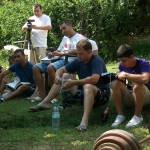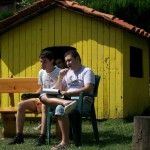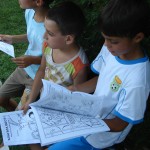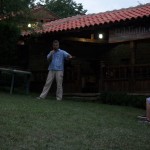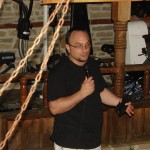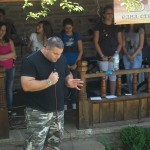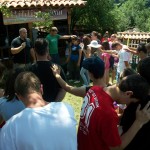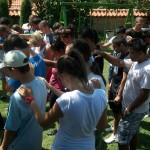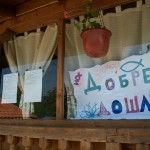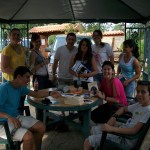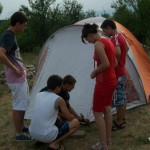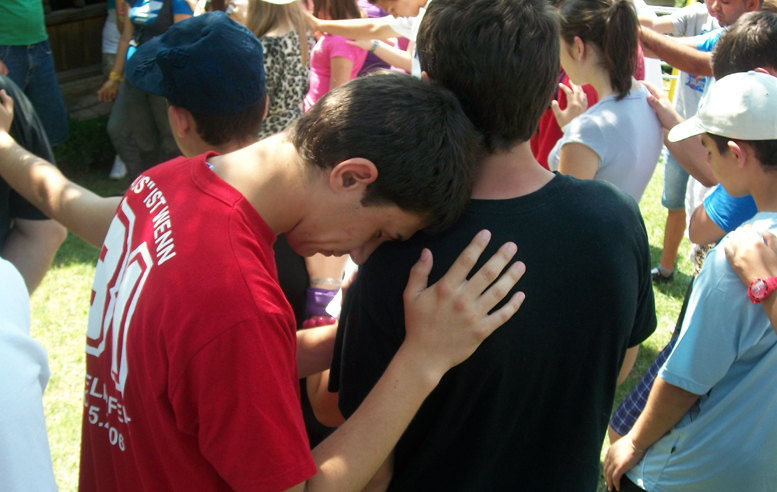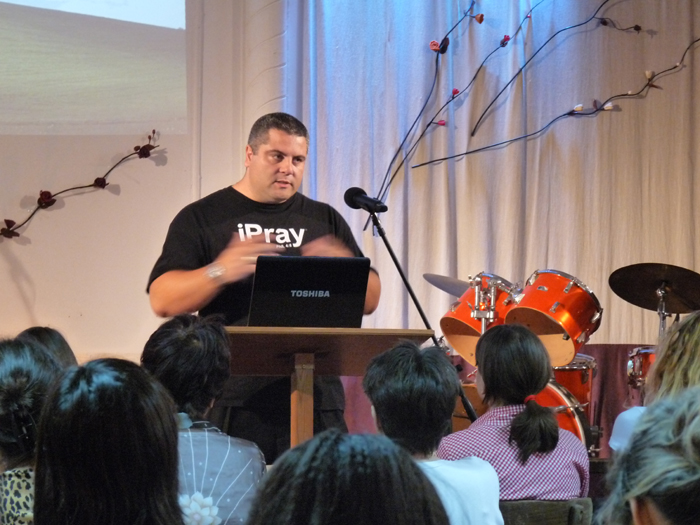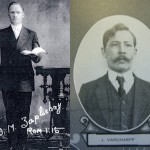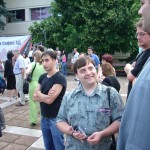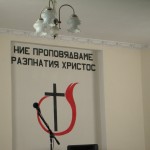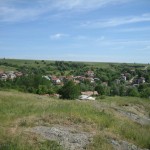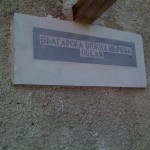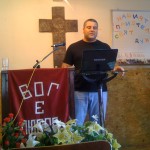Election’s Perspectives for Bulgaria
Bulgaria’s fall season has again become a colorful arrangement of political attitudes and campaigns toward the upcoming Presidential Elections on October 23, 2011. To add to the political theater at hand, Prime Minister Boyko Borisov thoughtfully scheduled the shooting of The Expendables 2 to take place in Sofia, Bulgaria a week before the elections.
Sylvester Stallone has been in Sofia for the past month or so, Dolph Lundgren for the past few days. Chuck Norris landed in Bulgaria last week, and now Bulgaria’s Prime Minister patiently is waiting for governor Schwarzenegger to arrive along with Bruce Willis before an official public meeting before the press with the star cast as part of his political campaign.
This time however, the nation’s political and ethnic tensions were rebirth anew after a civil unrest followed the death of two Gipsy boys in the village of Katunutza. The ruling party GERB was strongly criticized by its opponents for the way police handled the wave of protests that followed throughout the country.
Meanwhile, a total of 79 political parties and formations are already registered for the elections on October 23, 2011. Only seven of them are expected to have the necessary electorate to finish the race. They are as follows:
(1) GERB (Bul. “coat of arms”) the Bulgarian abbreviation means Citizens for European Development of Bulgaria took over the parliamentarian elections a few years back with the strong political figure of leader Boyko Borisov, who began his colorful career as fireman and personal bodyguard of ex. king Simeon and Bulgarian communist dictator of over 30 years Todor Zhivkov. Borisov became minister-general of Internal Affairs, mayor of Sofia and serves currently as Bulgaria’s Prime Minister. While he has not taken a much expected place as a presidential candidate, his political strategy has been strongly criticized by his opponents as inadequate and insufficient to answer Bulgaria’s current crises.
(2) BSP, the Bulgarian Socialist Party has followed a leftist communist trend for over a century now, being empowered by economic and structural recourses inherited by the Regime and Russia’s political strategies on the Balkans. Ruled in the triple coalition in the previous government mandate along with the party formed by the ex-king and Turkish minority, it has been represented in the past decade by current president with two consecutive mandates.
(3) Bulgaria’s Democratic Forces, a rightist party of 21 years is now lead by recognized evangelical Martin Dimitrov, but unofficially ruled by ex. prime minister Ivan Kostov. The party has again disappointed their supporters by being a small and inefficient political force, which remains in the periphery of Bulgaria’s political realm with small voting power and virtually no influence on government polices.
(4) NDSV (abr. National Movement for Stability and Progress) formed at the turn of the century by Simeon Saxe Coburg Gotha – Bulgaria’s ex-king returning after a 50-year exile. The party was a major political player since its coming to power in 2001, but has remained virtually uninvolved in recent years boxed by a political coffin created by both socialists and democrats after its last mandate ended. One of their activists, Mrs. Miglena Kuneva, currently serving as EU parliament deputy has launched a campaign as independent presidential candidate.
(5) ATAKA (Bulg. Attack) as always is absorbing the negative vote, which comes from the people disliking current government politics, socialism and minority parties. Their methods have been rightfully characterized as dangerous with extreme pro-Bulgarian chauvinism bordering nationalistic ideologies. The party was involved in a fire-related attack against the central mosque in Sofia and consecutively organized protests flaming ethnic and political unrest in the recent incidents at the village of Katuntza.
(6) RZS (abr. Order, Law and Justice) although keeping away from nationalistic ideologies, it resembles ATAKA, being a minor but scandalous political formation. RZS received sufficient vote in the last parliamentarian elections through presenting a series of compromising publications in major Bulgarian periodicals. These politics have been continued through RZS’s participation in government life, as the party was the first one to start its current campaign branded with the phrase “I’ll fire Boyko Borisov!”
(7) DPS (Bulg. Movement for Rights and Freedom) was formed on ethnic foundation of Bulgarian Turkish and Muslim population. It has remained the constant “balancer” in Bulgaria’s political life providing the necessary votes to one or another formation only to remain in power. DPS was blocked almost permanently after the last parliamentarian elections, but only until now when it is strongly entering Bulgaria’s political scene again.
After almost entering Bulgaria’s parliament in 1997, the Bulgarian Christian Coalition has again remained on the borderline of any political existence. Bulgarian evangelicals have never been able to reach their political legacy again, although the new Bulgarian census showed over 25% increase of evangelical population in Bulgaria to some 65,000 people strong. The alternative party, Christian Democratic Forum has showed no political activity since last election when it was defeated having only some 1,000 votes nationwide. The Bulgarian Christian Coalition has also chosen not to run in the presidential elections.
Chaplaincy Perspectives for Bulgaria
With the crises within the Bible College system of Bulgaria and the potential change of status for the Bulgarian Evangelical Theological Institute (Theological Seminary) in Sofia, the professional programs offered thus far will have to be assimilated into some liberal art schools with a newly evaluated perspective on Christian education in Bulgaria or they will be forever lost. In this context, some modifications may be required in the process to reflect more on these changes and their effects for the Chaplaincy Program as well as on the social role of chaplaincy in Bulgaria. Such search for equilibrium is only normal given that historically Bulgaria has placed chaplaincy ministry only within the perimeter of army, prisons and hospitals.
The final goal in our educational strategy, which directly targets legislation and practical implementation of chaplain ministry within various levels of government infrastructure, now remains for for the student chaplains graduating with a masters degree specifically designed for their area of ministry from our Program. Cooperation with a vast social network for this task is a must, and our students are already well trained through a practicum that strongly demands their cooperative work together. And while the Bulgarian armed forces still remain the only one within the structures of NATO that has no chaplaincy whatsoever, professional Chaplaincy, as we foresaw it a decade ago, will most probably begin with a new vision within the reformed infrastructure of the Bulgarian army and shortly afterwards move to other professional branches as well.
Chaplaincy Education for Bulgaria
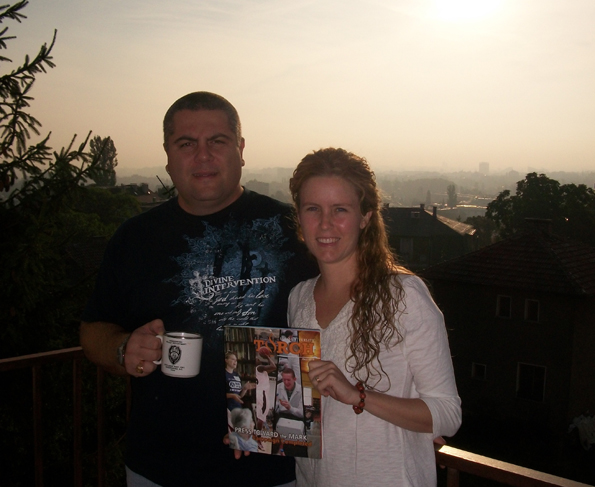 The completion of the first Master of Chaplaincy Ministry Program in Bulgaria and its official accreditation with New Bulgarian University in Sofia has raised interest about the educational strategy implemented in the task.
The completion of the first Master of Chaplaincy Ministry Program in Bulgaria and its official accreditation with New Bulgarian University in Sofia has raised interest about the educational strategy implemented in the task.
As early as 2001, Cup & Cross Ministries International in partnership with the Bulgarian Church of God invited the Church of God Chaplaincy Commission and implemented the first short-term chaplaincy training in the country since the Fall of the Berlin Wall. Even then it was clear that if chaplaincy was to remain a national focus, a clear educational strategy must be in place. As a result, with the establishment of the Bulgarian Chaplaincy Association in 2005-2006, our team set course toward a three-level national educational strategy on the subject of chaplaincy targeting:
(1) local churches and denominations,
(2) ministers with a calling for chaplain ministry, who are willing to dedicated time and effort in earning a masters degree in the filed,
(3) and last, but not least Bulgarian government agencies who in part would be instrumental in the reestablishment of chaplaincy in all relative areas.
The first of these three tasks was completed fairly easily as churches and evangelical denominations were open toward understanding and embracing chaplaincy, while many pastors and ministers within them had already experienced the need or had served in a similar context. The Bulgarian Chaplaincy Association and Cup & Cross Ministries partnered with the Military Ministry of Agape-Bulgaria, a regional wing of Campus Crusade, and for a bit longer than a year lectures, media materials and personal meeting were brought to several hundred local congregations, as well as national leaders of various denominations, among which the Assemblies of God and the Church of God. As a result virtually all evangelical denominations in Bulgaria were brought in position of supporting chaplaincy, a term which was once foreign, now well informed of its usage and strengths. It was time for step number two.
As early as 2006, students from various church backgrounds and active ministers were invited to participate in the first ever Master’s of Chaplaincy Ministry in the country. Four years later with the partnership of the United Theological Faculty of the Bulgarian Theological Institute in Sofia we were able to bring one of the few complete master’s program in chaplaincy in the world fully contextualized for the Bulgarian cultural and after much work and anticipation with a very timely and necessary international government accredited with the New Bulgarian University. Within the perimeter of the program are the follow modules:
(1) Module 1 was presented by the International Association of Evangelical Chaplains for the intro level module of chaplaincy ministry with special focus on military, police and prison work,
(2) Module 2 was presented by selected faculty members in the filed of Theological Studies from the Bulgarian Evangelical Theological Institute.
(3) While Module 3 in counseling, practicum and thesis completion was finalized by Cup & Cross Ministries International in cooperation with professors from New Bulgarian University.
Now the third level of education is at hand as chaplaincy is already being enforced by NATO and various EU agencies along with the realization on part of the Bulgarian government for the need of chaplaincy in various areas of administration even outside the armed forces, correctional institutions and the medical field. The role of our graduate students, who are now part of a well established and deeply rooted in the Bulgarian history and identity school of thought on how to do chaplaincy ministry, is imperative in this final task. To all that have taken it wholeheartedly, God speed and God bless.
BC/AD 2011 (Bible Camp/All Denominations) in Bulgaria – A New Paradigm for Ministry in the Spirit
6:00 AM The Day Begins with Prayer
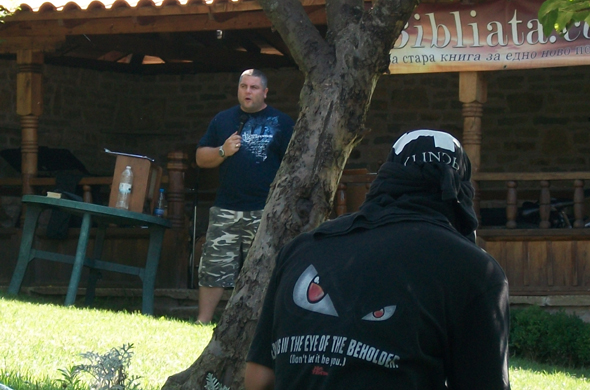
10:00 AM General Training Session
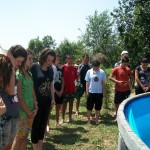
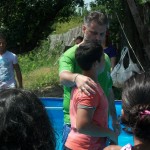
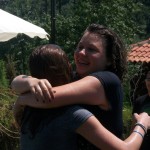
2:00 PM General Discussion/Water Baptism
4:00 PM Workshops in (1) Prayer, (2) Preaching, (3) Deliverance and (4) Missions
8:00 PM Evening Service followed by prayer at the alters until midnight
ALL ABOUT BIBLE CAMP 2011 BULGARIA:
BC/AD 2011 (Bible Camp/All Denominations) in Bulgaria – A Vision of Purpose
BC/AD 2011 (Bible Camp/All Denominations) – God’s Favor Realized
BC/AD 2011 (Bible Camp/All Denominations) in Bulgaria – A New Generation Called to the Presence of God
In order to provide spiritual upbringing for the young ministers, each day followed a carefully prepared schedule beginning with prayer at 6:00am. Dr. Dony Donev delivered the morning messages at 10:00am which continued with a personal time of prayer and reflection. Every afternoon at 4:00pm the youth broke into small groups on the topics of preaching, prayer and fasting, leading worship and healing and deliverance. Missionary Ivo Shatrovsky who has been a guest speaker at previous meetings held a group on Tuesday and spoke about foreign missions. Regional Bishop Vassil Petrov of the Gabrovo Church of God led a study group on the subject of Spiritual Ministry through Healing and Deliverance, Pastor Anton Penev of Reformation Church in Haskovo taught on prayer and praise, while Dr. Dony Donev lectured on preaching and teaching from the Word of God.
During our morning fellowship after prayer, the youth shared their unique calling for the ministry. Some where called to be worship leaders, others to be preachers, several even had a prophetic calling upon their lives and three shared their calling to missions in the Middle East. One of them received a confirmation during the camp that she was accepted to an Arab language studies program at the Bulgarian University of Velik Tarnovo, where she would receive further preparation for her calling.
On Wednesday afternoon six young ministers from our group displayed the results of their week of training and delivered a sermonet on Psalms 23. It was encouraging to see the dedication of these young men and women as throughout the day you would see them reading their Bibles in preparation and hear their prayers coming from unknown places.
A water baptism service was held at 2:00pm on Wednesday where after receiving instruction, 17 were baptized while all sang a Bulgarian hymn with the words “Come to the river with waters of life…”
The water baptism and all other results from the camp came with a direct testimony of experiencing the Glory of the Lord on the mountain. During the alter call following the service on Tuesday night in particular, the presence of God was so evident and powerful that prayers continued long after closing into the night. It was a moment like we have never seen before in our ministry of 21 years. This is a report which is not given lightly and was confirmed by various testimonies. A few follow:
“It has been a long time since I have witnessed a time like this and have felt God’s Glory so powerfully.” ~ Young minister from Haskovo
“From small to large were all one, and Jesus himself was among us. I personally am encouraged by this camp.”~ Regional Bishop Vassil Petrov of the Gabrovo Church of God
“I have never in my life experienced the presence of God so powerfully” ~ Panayot Budinov, Youth Pastor from the Assemblies of God Church in Yambol
“I am certain that the Word that was delivered at this camp will have global results”~ Young person with a Calling for Missions
“Mightily blessed! Outpouring of the Holy Spirit! Prayer, worship and anointing! Baptisms in the Holy Spirit and 17 water baptisms! What else could be said?” ~Pastor Anton Penev
We are waiting and believe that we will continue to receive praise reports from miracles and transformations that happened as a result of Bible Camp 2011. We thank all of those who made this camp a success and as always extend a special thanks to the Eco Complex Katunishte for graciously hosting our event and allowing us to use their facilities.
ALL ABOUT BIBLE CAMP 2011 BULGARIA:
BC/AD 2011 (Bible Camp/All Denominations) in Bulgaria – A Vision of Purpose
BC/AD 2011 (Bible Camp/All Denominations) – God’s Favor Realized
BC/AD 2011 (Bible Camp/All Denominations) in Bulgaria – A New Paradigm for Ministry in the Spirit
BC/AD 2011 (Bible Camp/All Denominations) in Bulgaria – A Vision of Purpose
Since 2008, when we began the Mobile School of Ministry in Bulgaria, our team has been able to organize an annual youth camp purposing the training and equipping young ministers for the harvest of God in Bulgaria. Just recently, our training model has been featured by youth outreach organizations like Youth for Christ via their European regional office in Barcelona, Spain.
When you hear about a youth camp you have a certain picture in mind like a reunion of friends who haven’t seen each other since last summer or times of fun, of games and so forth. But Bible Camp is not your typical youth camp. It was specifically designed for a select group of young people called and involved in the ministry.
This may sound strange at first, however, today in Bulgaria there are plenty of Christian camps for kids to hang out, play games and enjoy themselves. This camp is for young people who have accepted a calling for ministry on their lives. It is a time of prayer and fasting; a time of being one on one in a quiet place seeking the face of God, hearing His voice and seeing His Glory abide in a genuine Biblical and personal experience.
As early as 2008, this unique opportunity to train workers for the Harvest has been in the planning. It began with a Word that the Lord is calling a new generation to a new level of ministry in Bulgaria. This vision was casted among the churches and as a result teams from various towns were formed and we began having monthly leadership training seminars in the village Katunishte in the Balkan mountain in 2009.
Then, 2010 marked the first year of having an organized camp. Now, several years latter, we are able to announce that the second national annual Bible Camp in Bulgaria was a reality and a success. This is a camp that did not just spring up over night. Much prayer, planning and partnership went into making the vision a reality. (Continues)
ALL ABOUT BIBLE CAMP 2011 BULGARIA:
BC/AD 2011 (Bible Camp/All Denominations) – God’s Favor Realized
BC/AD 2011 (Bible Camp/All Denominations) in Bulgaria – A New Paradigm for Ministry in the Spirit
Masters in Chaplaincy Program in Bulgaria Continues
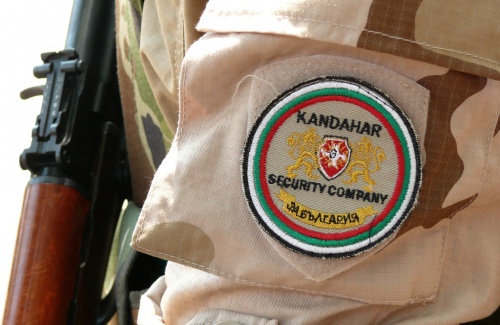 Just this past week our students of the first Masters in Chaplaincy Program in Bulgaria finished their classes of the Theology Module. This is the second of three sets of courses designed to equip active chaplains in Bulgaria for a new level of ministry in the armed forces, medical establishments and correctional institutions. The theology module incorporated various subjects from several schools of thought giving the students a solid theological background on a master’s seminary level for their future ministry. We are now ready to approach the last of the three modules, which deals with clinical psychology and Christian counseling, which will involve the students in a set of research assignments and practicum curriculum contributing directly to the writing and defense of their masters’ thesis prior to graduation from the chaplaincy program. Selected thesis will be published by the university’s press as a new volume in their innovative series and turned to NATO’s research foundation as a proposal to consider chaplaincy within the Bulgarian Army, which still remains the only armed force within the Alliance’ structure which does not implement chaplaincy into their missions.
Just this past week our students of the first Masters in Chaplaincy Program in Bulgaria finished their classes of the Theology Module. This is the second of three sets of courses designed to equip active chaplains in Bulgaria for a new level of ministry in the armed forces, medical establishments and correctional institutions. The theology module incorporated various subjects from several schools of thought giving the students a solid theological background on a master’s seminary level for their future ministry. We are now ready to approach the last of the three modules, which deals with clinical psychology and Christian counseling, which will involve the students in a set of research assignments and practicum curriculum contributing directly to the writing and defense of their masters’ thesis prior to graduation from the chaplaincy program. Selected thesis will be published by the university’s press as a new volume in their innovative series and turned to NATO’s research foundation as a proposal to consider chaplaincy within the Bulgarian Army, which still remains the only armed force within the Alliance’ structure which does not implement chaplaincy into their missions.
2011 Historic Pentecostal Revival Tour in Bulgaria Continues
We continued our Historic Pentecostal Revival Tour in celebration of the 90th anniversary of the First Bulgarian Pentecostal Revival with the Church Leadership Summit in Silistra – an event that has been in prayerful planning for almost two years now. It involved a day of leadership training for the pastors and workers of all churches in the Silistra region. Silistra – is a port city of northeastern Bulgaria, lying on the southern bank of the lower Danube at the country’s border with Romania. The town is a major cultural, industrial, transportation and educational center with many historical landmarks including a Roman port, remains of the Medieval fortress and a Turkish Ottoman fort. But our purpose there was not religious tourism, but rather to bring valued principles of church leadership and growth to the heart of this major educational center of north-eastern Bulgaria.
The training took place all day on Saturday with breaks in between for fellowship and discussion. We started the morning sessions with an introduction to the subject of Church Leadership and Team Work, while the afternoon brought in a major way the lecture of Structuring the Church for Growth with a review and consecutive discussion groups. It was well received and time for questions at the end was very inviting. As always, it was encouraging to watch church leaders from various denominational groups and religious backgrounds opening for learning and change, while engaging in a healthy dialogue together. Many inquiries regarded concerns of motivation which lead to an invitation to return and hold another training event specifically on the subject of Internal Motivation within Church Leadership. Then in the Sunday service, we brought a message on the Last Day Prophecies.
The trip was also very important to our ministry, as last time when we were in Silistra six years ago we signed the contract for publishing the New Bulgarian Translation of the Bible beginning with Gospel of John. It was a great joy and even greater blessing to be back and meet with our friends at Eagle Publishers. There, we discussed recent and future projects as well as new ministry opportunities in light of their new technological capabilities. We hope to partner together on several projects including a 140th anniversary of the first Bulgarian Bible of 1871, the new translation of the Gospel of Mark, our research essays on Bulgarian Protestant history and of course the long awaited Sunday School project for the Church of God. We were able to pick up several containers of Christian materials including our new translation of Matthew, which will be given to the participants at our 2011 Ministry Camp in July.
While in Silistra, we also received a special invitation to view the art gallery of one lady from the church. Her husband and she spent over 40 years painting Christian oriented murals, portraits and so forth, which have been preserved over these years and put on display. With every piece came a story and the story will continue to live on for years to come.
After the morning service on Sunday we left immediately and traveled to the old Bulgarian capital city of Veliko Tarnovo where we ministered to the newly formed Bulgarian Church of God congregation there. Although still relatively small in numbers, they have grown in size since our previous fellowship together last year, moving from home group meetings to a rented conference room in the city center. Regional Bishop, Pastor Vassil Petrov, shared with us of their search for a new method of ministry in which we were able to offer some suggestions for such transformation. From there we traveled to Gabrovo where we where able to further fellowship in the regional bishop’s meeting.
Late Monday morning we traveled to Kuzanluk where the first Baptist church in Bulgaria was established in the 19th century and where some of the first baptisms with the Holy Spirit in Bulgaria occurred in the early 1920s. We were able to inspect the ongoing church renovation there while meeting with leaders of various churches.
Please keep us in your prayers as our journey is long and the days are but few here in Bulgaria. Yet the reward of the ministry is great and the satisfaction makes things easier watching this great nation awaking for a revival with God once again. We have noticed great spiritual change since we returned with the effects of the economic crises here. And with over 400 miles driven, 4 days traveled, 5 lectures delivered, 2 sermons preached in this part of our commemorative Pentecostal Tour, you still cannot put a price on the salvation of a human soul. Go to the ends of the world to preach the Gospel is still the command. Whatever the cost.
NEW REVIVAL in BULGARIA
Unprecedented revival is sweeping the country of Bulgaria again and has started among the Pentecostal Church of God. We have spent the last full month in traveling and preaching in key churches crossing the country from the capital Sofia to the Black Sea and from the Danube River through the Balkan Mountains to the Thracian Valley.
While people in general are struggling with the economic and political crises and the church is in continuous leadership dilemmas, God is on the move with a new revival mainly among the new generation of young people. We saw this in recent national youth events like our spring 2011 youth leaders gathering near Yambol and the regional youth revival in Silistra during Easter. Similar meetings were reported in Eastern Bulgaria in May and in the capital Sofia in June with the arrival of praise team from Hillsong, which gathered over 7,000 people in one single event. And last but not least, various meetings of Roma leaders and youth, to which we had the privilege to contribute as well.
We are now looking forward to combining these experiences within our national Bible Camp which we hold for young ministers and youth leaders, followed by the New Wave camp at the Black Sea and the traditional Karandila Youth Camp in the Balkan Mountain. For when one generation looses touch with God, as described in Jeremiah 5:31, God always brings a new generation to serve Him. Today, God is raising a generation of young and faithful people full with the Holy Ghost, and we simply cannot afford to stay out of this great move of God in the last days.
2011 Historic Pentecostal Revival Tour in Bulgaria
Celebrating 90 years since the first Pentecostal revival in Bulgaria
Exactly 400 years ago, the first King James Bible was printed in June, 1611. The first Bulgarian Bible was printed 140 years ago in June, 1871. The first Pentecostal Revival in Bulgaria took place between Easter and Pentecost of 1921. And finally, exactly 20 years the Pravetz youth group, where I had the privilege to begin my ministry, experienced a spiritual revival in which hundreds of young people were reached and saved.
To commemorate this great heritage, we undertook a historic revival tour during the month of June in Bulgaria. We started at the Black Sea with the momentous ordination of presbyters in the church of Aheloy – one of the few Church of God congregations with the original doctrine and practice. The special ordination service on Saturday night went on with prayer and praise, communion and foot washing until 2am.
Then on Sunday we gathered at 6:30am for prayer and followed with the morning service. We continued with services in Pravetz, where our youth group celebrated its 20-year anniversary, then at the church in Verdical near Sofia with a special foot washing and communion service, and finally in Sofia with a prophetic word to the Church of God in the Obelya suburb.


